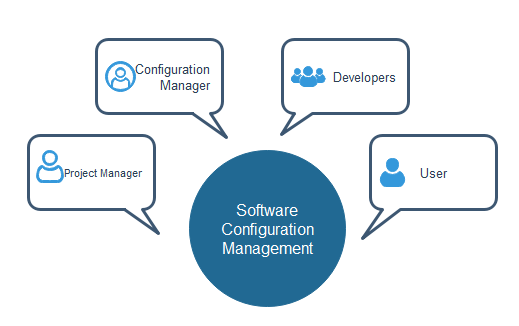ActivitiesSoftware Project Management consists of many activities, that includes planning of the project, deciding the scope of product, estimation of cost in different terms, scheduling of tasks, etc. The list of activities are as follows:
Now we will discuss all these activities - 1. Project Planning: It is a set of multiple processes, or we can say that it a task that performed before the construction of the product starts. 2. Scope Management: It describes the scope of the project. Scope management is important because it clearly defines what would do and what would not. Scope Management create the project to contain restricted and quantitative tasks, which may merely be documented and successively avoids price and time overrun. 3. Estimation management: This is not only about cost estimation because whenever we start to develop software, but we also figure out their size(line of code), efforts, time as well as cost. If we talk about the size, then Line of code depends upon user or software requirement. If we talk about effort, we should know about the size of the software, because based on the size we can quickly estimate how big team required to produce the software. If we talk about time, when size and efforts are estimated, the time required to develop the software can easily determine. And if we talk about cost, it includes all the elements such as:
4. Scheduling Management: Scheduling Management in software refers to all the activities to complete in the specified order and within time slotted to each activity. Project managers define multiple tasks and arrange them keeping various factors in mind. For scheduling, it is compulsory -
5. Project Resource Management: In software Development, all the elements are referred to as resources for the project. It can be a human resource, productive tools, and libraries. Resource management includes:
6. Project Risk Management: Risk management consists of all the activities like identification, analyzing and preparing the plan for predictable and unpredictable risk in the project. Several points show the risks in the project:
7. Project Communication Management: Communication is an essential factor in the success of the project. It is a bridge between client, organization, team members and as well as other stakeholders of the project such as hardware suppliers. From the planning to closure, communication plays a vital role. In all the phases, communication must be clear and understood. Miscommunication can create a big blunder in the project. 8. Project Configuration Management: Configuration management is about to control the changes in software like requirements, design, and development of the product. The Primary goal is to increase productivity with fewer errors. Some reasons show the need for configuration management:
Tasks perform in Configuration management:
People involved in Configuration Management: 
Next TopicProject Management Tools
|
 For Videos Join Our Youtube Channel: Join Now
For Videos Join Our Youtube Channel: Join Now
Feedback
- Send your Feedback to [email protected]
Help Others, Please Share









